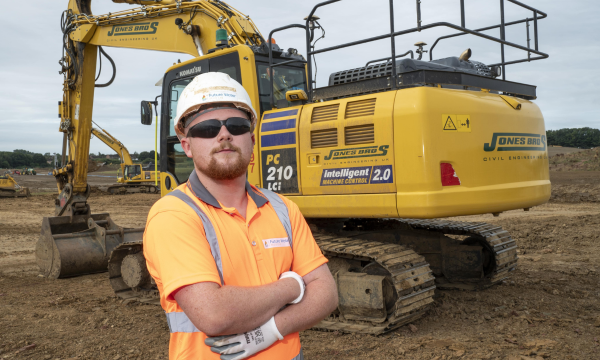Wales will need an extra 11,000 construction workers by 2028 to meet demand.
The annual industry forecast from the Construction Industry Training Board (CITB) highlights a continuing persistent gap between what Wales needs to keep up with demand and the workforce available to meet the challenge.
CITB’s Construction Skills Network (CSN) 2024-28 report reveals that more construction workers left the industry last year than new joiners. For almost a third of construction employers, finding suitably skilled staff remains their key challenge, particularly with more older workers retiring and not being replaced.
The report shows that in Wales construction output is set to rise by 1.2% annually between now and 2028, with initial demand in repair and maintenance. Future opportunities are expected to arise in new work across public non-housing, public housing and private housing.
A total of 11,000 extra workers, or 2,200 a year, will be needed in order to meet the continued construction growth expected over the next five years, the report says.
CITB Wales pointed to a number of schemes across Wales it says will be major drivers for growth, including:
- The Awel y Môr wind farm project off the coast of Llandudno which will generate 500MW of electricity, enough to power 500,000 homes by 2030.
- The £590 million Dowlais Top to Hirwaun section of the A465 Heads of the Valley Road, which will run through to the middle of 2025.
- The £360 million development on the Embankment site in south Cardiff, which will see 47 acres of brownfield land regenerated to provide 2,500 homes alongside 54,000 square metres of business space.
- The University of South Wales’ new academic building at its Treforest Campus.
CITB Wales Engagement Director Julia Stevens said:
“Construction is an essential sector for our regional and national economic prosperity. We anticipate continued industry growth in Wales, but we need to meet demand with more people in the workforce with the right skills.
“CITB’s CSN report highlights how Welsh employers can address the challenge by recruiting and developing a skilled, competent and diverse workforce that is able to meet current and future needs.
“We are committed to ensuring that the skills system is fit for purpose to deliver on the great opportunities across Wales, now and in the future. The industry has shown particular resilience throughout what has been an undeniably tough few years. Here at CITB, we have a crucial role to play in supporting its growth through recruitment, training, development and upskilling.”
CITB has invested £267 million to help the industry improve diversity, quality and productivity as well as making construction a more attractive career choice for future generations. Among the areas this investment will directly support are three expanded initiatives:
- New Entrant Support Team (NEST) – helping employers to better navigate the recruitment process, access grants and suitable training, when and where needed.
- Industry Impact Fund – making direct funding available for employers to design and test new solutions for talent recruitment and retention challenges.
- Employer Network – rolling this out across Great Britain, to enable employers to set their own funding priorities and meet area-specific skills needs.
























